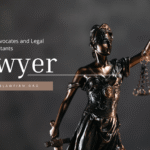Comprehensive Legal Analysis of Pension Laws and Rights of Government Servants in Pakistan: Types, Calculation, Procedure, and Remedies for Grievances
Comprehensive Legal Analysis of Pension Laws and Rights of Government Servants in Pakistan: Types, Calculation, Procedure, and Remedies for Grievances
I. Introduction
Pensions are a cornerstone of the social security framework for government servants in Pakistan. They represent a deferred income that becomes due upon retirement and aim to provide financial security and dignity to public servants in their post-retirement lives. The right to pension is not a bounty or favor; it is a fundamental entitlement under service laws, backed by judicial precedents and recognized globally. In Pakistan, pensions are governed by various statutory and regulatory instruments, including the Civil Servants Act, 1973, and the Civil Servants (Pension) Rules, 1973. This comprehensive analysis will examine the structure of the pension system for government servants in Pakistan, including types of pensions, eligibility criteria, calculation methods, administrative processes, and legal remedies for disputes.
II. Types of Pensions Available to Government Servants
1. Superannuation Pension
This is granted to a government servant who retires on reaching the age of superannuation, generally 60 years, as per Section 13 of the Civil Servants Act, 1973.
2. Retiring Pension
Awarded to those who opt for voluntary retirement after completing a minimum qualifying service of 25 years.
3. Invalid Pension
Granted when a government servant is declared permanently incapacitated for further service due to physical or mental infirmity.
4. Compensation Pension
If a permanent post is abolished and no alternative employment is offered, a compensation pension is provided.
5. Compulsory Retirement Pension
In cases of disciplinary action leading to compulsory retirement, pension may be granted depending on service record and discretion of the competent authority.
6. Family Pension
Payable to the spouse or nominated family member of a deceased government servant, either during service or post-retirement.
7. Commuted Pension
A part of the monthly pension can be commuted into a lump sum amount. This is optional and subject to approval.
8. Benevolent Fund and Group Insurance
Though not strictly pension, these are supplementary post-retirement benefits under the Employees’ Benevolent Fund and Group Insurance Act, 1969.
III. Eligibility Criteria and Conditions
- Minimum qualifying service is generally 10 years for pension eligibility.
- A government servant must retire from a pensionable post.
- Breaks in service must be regularized.
- Lien must be retained when a servant is transferred to another department.
- Suspension periods may or may not count towards qualifying service depending on outcomes.
Relevant Rule: Rule 3 and Rule 9 of the Civil Servants (Pension) Rules, 1973.
IV. Procedure for Grant of Pension
- Notification of Retirement: Initiated six months before the date of retirement.
- Preparation of Pension Papers: By the concerned Drawing and Disbursing Officer (DDO).
- Forwarding to Accountant General (AG): Application sent to AG Office or AGPR for federal employees.
- Pension Sanction and Verification: AG verifies records, service duration, pay last drawn.
- Issuance of PPO (Pension Payment Order): The final step before payment.
Circulars: Establishment Division’s Standard Operating Procedures (SOPs) and Finance Division Guidelines.
V. Formula and Ratio for Pension Calculation
Formula:
Gross Pension = Last Basic Pay x 7 x Completed Qualifying Years / 300
Commuted Portion = Gross Pension x 35% x Commutation Factor (Age-based)
Net Monthly Pension = Gross Pension - Commuted Portion
Gratuity = Commuted Portion x 12 x Commutation Factor- Pension increases are given annually through federal/provincial budgets.
- Service beyond 30 years does not increase pension, but can impact gratuity.
Example: For a government servant with 30 years of service and last drawn pay of Rs. 100,000:
- Gross Pension = 100,000 x 30 / 300 = Rs. 30,000
- Commuted Portion = 30,000 x 35% = Rs. 10,500 (multiplied by commutation factor for gratuity)
VI. Delay, Denial or Miscalculation of Pension – Common Issues
- Delay in preparation or forwarding of pension papers.
- Non-regularization of service breaks or suspensions.
- Wrong calculation of qualifying service.
- Non-sanctioning of annual increases.
- Denial of family pension due to lack of nomination.
These issues are usually due to negligence, misinterpretation of rules, or lack of coordination between departments.
VII. Legal Remedies and Redressal Forums
1. Departmental Appeal
Initial representation can be made to the head of the department or administrative secretary.
2. Federal/Provincial Ombudsman
For maladministration and delay without just cause (Federal Ombudsman Ordinance, 1983).
3. Service Tribunals
Established under the Service Tribunals Act, 1973. Have exclusive jurisdiction over service matters including pension.
4. High Courts
Writ petition under Article 199 of the Constitution if no alternate remedy or grave miscarriage of justice.
5. Supreme Court
Final forum of appeal. Also entertains Suo Motu actions in appropriate pension-related cases.
VIII. Relevant Laws and Rules
- Civil Servants Act, 1973
- Civil Servants (Pension) Rules, 1973
- Finance Division Notifications and Circulars
- Establishment Division Rules
- Government Servants Benevolent Fund and Group Insurance Act, 1969
- Service Tribunals Act, 1973
- Constitution of Pakistan, Article 9 (Right to Life), Article 14 (Dignity of Man)
IX. Landmark Judgments
- Government of Punjab v. Iftikhar Ahmed (2010 SCMR 817): Pension is a vested right.
- Muhammad Nawaz v. Secretary Establishment (PLD 2013 SC 108): Delay in pension payment violates fundamental rights.
- Federation v. Muhammad Sadiq (2014 SCMR 1234): Courts can direct correction of miscalculated pensions.
- Aziz ur Rehman v. Govt. of Sindh (2019 PLC (C.S.) 1058): Family pension cannot be denied if nomination is absent but dependency proven.
X. Recommendations for Reform
- Digitization of service and pension records
- Training of DDOs and AG staff
- Simplified procedures and timelines
- Clearer rules on service breaks, suspensions, and deputations
- Introduction of online grievance redressal portals
XI. Conclusion
Pension rights are not just statutory entitlements—they are essential for the dignity and welfare of retired public servants. While Pakistan has a robust legal and administrative framework, inefficiencies and negligence often hinder the realization of these rights. It is imperative that the system be modernized, judicially protected, and administratively streamlined to ensure that retired government employees receive their due entitlements without delay or litigation.
This comprehensive legal analysis aims to serve as a guiding document for lawyers, litigants, public administrators, and policymakers involved in pension matters across Pakistan.



